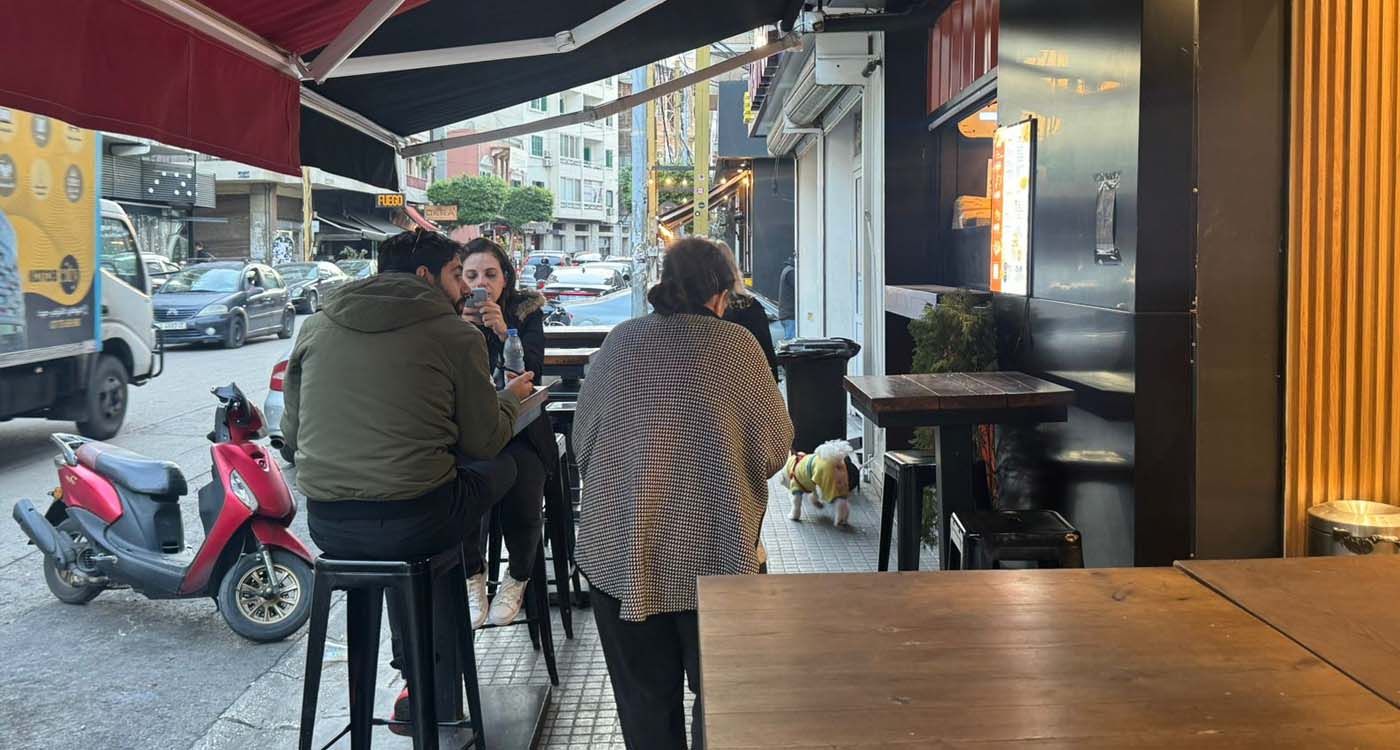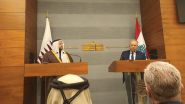
At 9:30 AM this Wednesday in Beirut, the sky is gray, but Madeleine’s smile, spotted at Sassine Square in the heart of Ashrafieh, is infectious. Madeleine, in her seventies, was in her car asking for directions to the Ministry of Foreign Affairs. I take the opportunity to ask her about the ceasefire between Israel and Hezbollah, which officially went into effect at 4 AM. "I’m happy and very optimistic," she replies before driving off.
Many are discussing the potential aftermath of this truce today, with mixed emotions—hope for better days ahead and fear of an uncertain future.
“This morning, we’re doing great, we’re happy, we haven’t heard any drones overhead,” they say in unison, their faces bright. Georgette, a petite brunette of the same generation with a cane in hand, and Marie, a little younger with a slight Armenian accent, are eager to forget Tuesday, when, as they put it, “our hearts stopped” from the fear caused by the constant raids throughout the day and night. “God is great,” says Georgette, holding on to hope for a real peace.
Mixed hope and shared exhaustion
Riad, a concierge, also expresses "a lot of hope" for this 60-day truce, which he believes "could turn into a real ceasefire," as long as "the intentions of both parties (Israel and Hezbollah) are genuine." However, despite feeling better this morning, he remains "emotionally exhausted" from the struggles endured since 2019, with the persisting economic and financial crisis.
Dalila, the owner of a local grocery store in her early fifties, shares a similar view. She was woken up at 5:30 AM by "celebratory gunfire," which she considers "irrelevant."
For Issam, a taxi driver in his forties, "this truce is necessary. Lebanon has been devastated by all the destruction and loss of life. Enough is enough! People need a break," he insists. However, Issam has concerns that Hezbollah "won’t honor the commitments that led to the truce with Israel."
Jinane, originally from South Lebanon, lives in Haret Hreik but moved to Aley with her family due to the war, where they rented an apartment. She works at a travel agency in Ashrafieh. This morning, before heading to work, she decided to visit her home in the southern suburbs of Beirut. "My house is the only one still standing, surrounded by rubble," she said. While she’s relieved to return, she feels sorrow for her friends who have lost their homes.
Disillusionment
On Saideh Street, Abdallah, a man in his fifties and the owner of a mini-market, remains deeply pessimistic. He says he has lost all hope in this country, particularly in its leaders. "The population is a reflection of these leaders," he believes. "We need to change the mindset of the people who keep voting for the same ones, or nothing will change."
Tony, a 41-year-old father of two boys, aged 12 and 8, and the owner of a hair salon in the Geitawi neighborhood, has lost all hope since the 2019 crisis. This morning, he woke up "as if nothing had happened." He explains that he "will continue with the paperwork to emigrate with his family to Canada, a safe country that can offer a future for the children." For this hairdresser, "nothing will change in Lebanon." "I've given too much of my time to this country," he says. "Before 2019, I still had hope, but life is short, and at my age, I can't afford to waste a minute."
A free, sovereign, and independent country
Wearing a beret, François, an 80-year-old retiree whose hearing loss spared him from hearing the recent raids, shares an optimistic outlook with his wife, Laurence. This former banker, who lives in Sioufi, hopes for "peace and the deployment of the army across the entire country." He is deeply committed to seeing Lebanon "finally become a sovereign and free nation."
Sina, an English teacher whose name means "moon" in Syriac, also dreams of Lebanon’s sovereignty. "Above all, I hope this war will be the last," she says, her voice filled with emotion. "We deserve to live in peace in a normal country."
"I just want to get in my car and visit my friends in Ain el-Remmaneh and Chiyah," she adds, revealing that she hasn’t left Ashrafieh in months.
For the first time in months, Pamela, a 15-year-old high school student, feels happy. "I’m finally going to see my friends and live a normal life," she beams, as her parents had restricted her movements during the war.
"I woke up this morning to the sound of birds singing on my balcony! No more deafening drones! No honking, no traffic jams, no terrible news flooding my phone screen, no raids," says Kareen, a woman in her early forties.
The morning felt light, yet strange, with a mix of hope and deep concern about the future. "Hope, followed by the big question, as I made my coffee: Would this puppet government tear the country apart again, finish it off? Would they finally dismantle the death militia? I dream of the Lebanon of the past, the golden age, the one I never knew," she confides, her voice filled with emotion.
Kareen’s fears and hopes mirror the sentiment of an entire generation that longs to finally believe in a free, sovereign, and independent country.




Comments